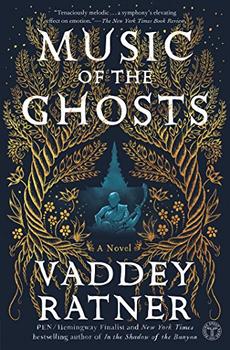The abbot says, "Foreigners have often said ours is a "culture of impunity." An English phrase, as you know... . What does it really mean?" Judging by Ratner's description in the book, would you describe the Cambodian culture as such?

 Judging by Ratner's description in the ...
Judging by Ratner's description in the ...
Created: 03/28/18
Replies: 3
Join Date: 10/15/10
Posts: 3442
The abbot says, "Foreigners have often said ours is a "culture of impunity." An English phrase, as you know... . What does it really mean?" Judging by Ratner's description in the book, would you describe the Cambodian culture as such?
Join Date: 06/19/12
Posts: 408
"Impunity" means "freedom from punishment." In a discussion about what to do with the young girl Lah, whose mother has been killed, the abbot says to the Old Musician, "Are we truly exempted from punishment for our crimes, when our culture, our core belief, tells us knowledge of the atrocity we commit is itself a punishment?...We inflict suffering because we are afflicted. Round and round it goes." It would appear from the story that Cambodian culture is one of constant punishment, much of it self-inflicted,, rather than absent punishment.
Join Date: 02/18/15
Posts: 497
I do not believe any culture is a "culture if impunity". No culture or individual goes unpunished. Sooner or later our offenses catch up to us. Everyone is responsible for their actions and pays the price for their deeds. Some may appear to be untouched, but the memory is always present.
Join Date: 02/15/18
Posts: 7
The whole idea of punishment is based on judgment- there is a right and a wrong, in Music of Ghosts, Radney time and again explores that this line is not nearly as clear as we try to make it. And yet, so many are punished: through loss, through broken hearts, maimed bodies, and so on. If anything, I think Radney asks us to consider: where might we/I (every culture) at some level be living as we/I don't have culpability?
Reply
Please login to post a response.